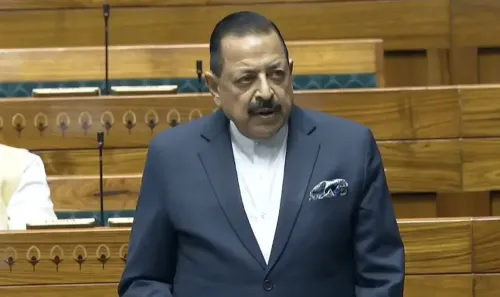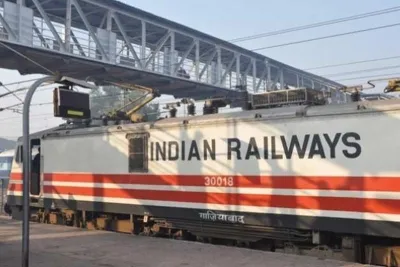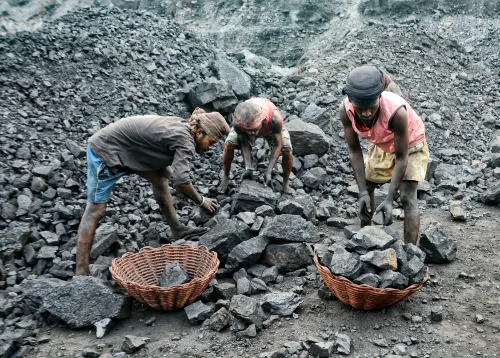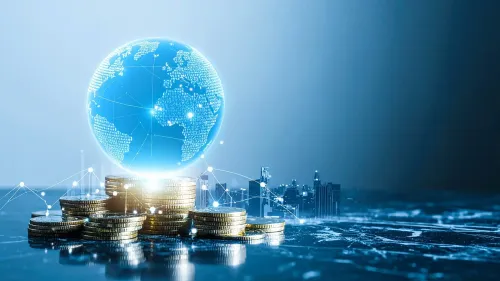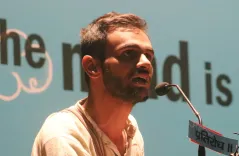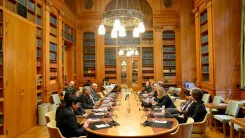What Did Meloni Discuss During Trilateral Talks with US & EU?
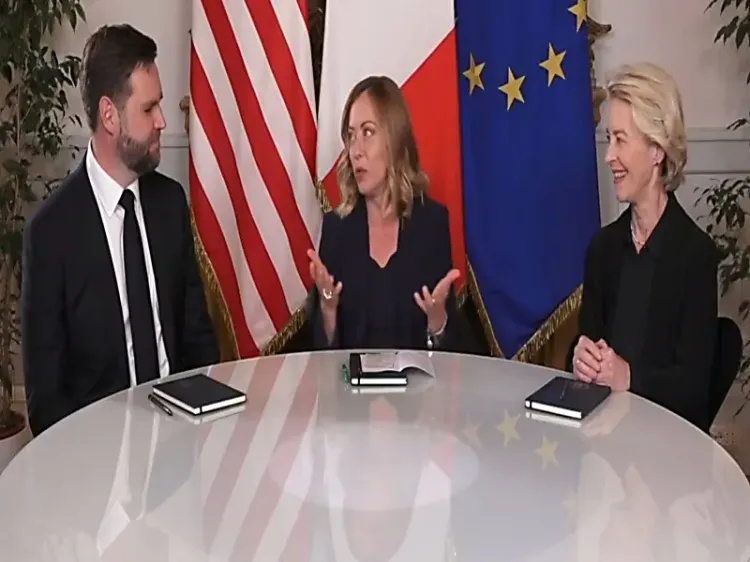
Synopsis
Key Takeaways
- Significant diplomatic gesture by Italy's PM Meloni.
- Trilateral talks focused on trade, defense, and global security.
- Pope Leo XIV’s inaugural mass provided a symbolic backdrop.
- Leaders emphasized the need for collaboration.
- Meeting characterized as a new beginning for trade relations.
Rome, May 18 (NationPress) In a noteworthy diplomatic move highlighting the revitalized transatlantic dialogue, Italian Prime Minister Giorgia Meloni welcomed US Vice President J.D. Vance and European Commission President Ursula von der Leyen for important discussions in Rome on Sunday.
The gathering, held as an ancillary event to the momentous inaugural mass (previously termed enthronement) of Pope Leo XIV — the first American to ascend to the papacy — signified a possible shift in US-EU relations, with trade, defense, and global security at the forefront of discussions.
During the press briefing at the commencement of the talks, Prime Minister Meloni underlined the symbolic and strategic significance of this meeting.
“I take great pride in hosting two of the most influential leaders representing the US and the European Union. There are numerous matters to tackle, many obstacles to surmount, but fundamentally, there is a shared understanding of the critical nature of our transatlantic relationship — particularly for a West that aspires to remain unified and impactful on the global stage,” stated the Italian Prime Minister.
Meloni characterized the meeting as a “new beginning,” especially in the sphere of trade, where tensions have lingered in recent years.
While recognizing that trade negotiations are under the jurisdiction of the European Commission, she emphasized Italy’s role as a mediator of dialogue.
“Today is about constructing bridges,” she remarked.
Known as the “Trump whisperer,” Meloni was among the few European leaders present at President Trump’s inauguration. She met with Trump for a bilateral discussion in April, during which he accepted Italy’s offer to host trade talks with the European Union.
US Vice President J.D. Vance, representing the Trump administration, mirrored Meloni’s collaborative spirit. Commending the solemnity and unity exhibited at Pope Leo XIV’s inaugural Mass, he praised Italy's hospitality and reiterated the robustness of the US-Italy alliance.
“We are excited to be here on such a significant day. This meeting is not solely about resolving differences, although we have a few, particularly regarding trade, but also about reaffirming our mutual commitments. Europe remains an essential partner for the US, and we anticipate that this dialogue will pave the way for enduring cooperation and shared benefits,” Vance stated.
European Commission President Ursula von der Leyen adopted a similarly cooperative tone, highlighting the extensive economic ties that exist.
“We already maintain the largest trade relationship globally, exceeding $1.5 trillion annually,” she observed.
While acknowledging that technical negotiations can be intricate, “the devil is in the details,” she quipped.
She also expressed hope that the discussions would lead to a fair and mutually advantageous agreement.
Von der Leyen raised two crucial geopolitical issues: the conflict in Ukraine and European defense readiness.
She commended ongoing US-EU coordination concerning Ukraine and underscored the necessity for sustained efforts towards a “just and lasting peace.”
On defense, she pointed out new initiatives by the Commission to enhance military investment among EU member states, stating, “A stronger Europe inherently means a stronger NATO.
The trilateral discussions, albeit informal, indicate a significant effort to recalibrate US-EU relations amidst a changing global scenario. The fact that these discussions occurred on the sidelines of Pope Leo XIV’s enthronement only intensified the symbolism: a fusion of religious tradition and geopolitical renewal.
Separately, it was noted that VP Vance engaged in a 30-minute meeting with Ukrainian President Zelensky.
A historic informal meeting between Trump and Zelensky captured headlines when the two met privately in St. Peter’s during Pope Francis’s funeral.
In conclusion, Italian Prime Minister Meloni remarked, “This is an initial meeting — but we hope it will not be the last.”


